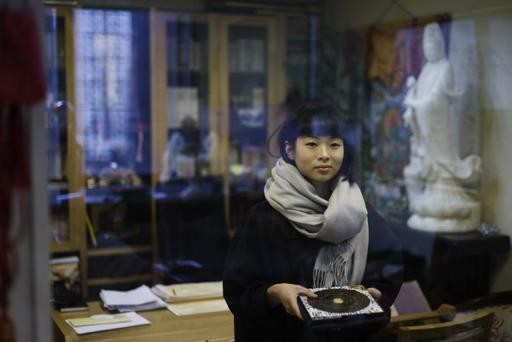What You Should Know About Hong Kong SAR Yahoo She Philippines
Post on: 20 Август, 2015 No Comment

Many know of the takeover of Hong Kong by China in 1997 but few are aware of the fact that Hong Kong has been a part of China since ancient times. It was ceded by China to Britain after the First Opium War in 1840. A few years after the Second Opium War, China leased the new territories together with 235 islands (which included Hong Kong) to Britain for 99 years starting from July 1, 1898. The issues related to Hong Kong’s reunification with China started to resurface in the late 1970s. The concept of “one country, two systems” was put forward by Deng Xiaoping in early 1980s to solve the question of Hong Kong.
12 Principles
In 1982, a new constitution of the People’s Republic of China (PRC) was endorsed by the Fifth National People’s Congress (NPC) to include Article 31, which stipulated that it had the ability to establish special administrative regions when necessary. The systems to be instituted in special administrative regions shall be prescribed by law enacted by the National Peoples Congress in the light of the specific conditions. The Chinese government formulated 12 basic policies in early 1983 to form clear guidelines and strategies regarding the status of Hong Kong. These are known as the 12 Principles .
The process of taking back Hong Kong entered its final stage when the Joint Declaration of the Government of the Peoples Republic of China (PRC) and the Government of the United Kingdom of Great Britain and Northern Ireland was signed on Dec. 19, 1984. The governments decided that China would resume its administration over Hong Kong on July 1, 1997, known colloquially as the handover. The Sino-British joint Declaration marked the beginning of the 13 year transition phase before Hong Kong’s return to China.
The new Hong Kong Special Administrative Region (HKSAR) would need its own set of laws, which would come to be known as the Basic Law. Work on the Basic Law was started in April 1985 and was completed almost five years later. It was passed by the Seventh National People’s Congress (NPC) later in 1990 and went into effect after the handover. The Basic Law features 160 articles divided into nine chapters and is based on the 12 principles set in 1983. Those principles were meant to guide Hong Kongs governance for the next half century.
The Basic Law of the HKSAR is a basic law formulated in accordance with the Constitution of the Peoples Republic of China. It stipulates the system and policies to be instituted in the HKSAR, and is the legalization and institutionalization of the one country, two systems policy. It also provides a legal basis for the implementation of one country, two systems in the HKSAR.
The handover marked the beginning of “one country, two systems.” HKSAR has autonomy, but remains an inseparable part within the People’s Republic of China and falls under Chinas Central Peoples Government. Two systems means that, within the one country the mainland practices socialism, while Hong Kong practices capitalism. (For related reading, see: The 5 Most Economically-Free Countries in the World .)
Blueprint of the Basic Law
Deng Xiaoping called the Basic Law a law of historic and international significance and a creative masterpiece. Here are its main points:
- The HKSAR enjoys high degree of autonomy and has executive, legislative and judicial power including that of final adjudication;
- Only the permanent residents of Hong Kong can be the executive authorities and legislature of the HKSAR;
- The socialist system and policies of People’s Republic of China are not imposed on HKSAR, and the previously followed capitalist system and way of life continue;
- No law enacted by the legislature of the Hong Kong Special Administrative Region shall contravene the Basic Law;
- The HKSAR comes directly under the Central People’s Government (CPG) and the CPG is responsible for the Foreign Affairs and Defense of HKSAR;
- The maintenance of public order in the region shall be the responsibility of HKSAR government. The CPG does authorize the HKSAR using the name “Hong Kong, China,” to indulge and carry out relevant external affairs with international organizations and foreign states in according with the basic law;
- The HKSAR is an international financial center, a free port and is a separate customs territory. It has its own markets for foreign exchange, gold, securities and futures. The Hong Kong dollar (HKD) is the official currency of the region; (For more, see: The Hong Kong Dollar: What Every Forex Trader Needs to Know .)
- The HKSAR is headed by the Chief Executive who is accountable to the Central People’s Government. The Chief Executive has to be a Chinese citizen (not less than 40 years of age) who is a HKSAR resident and has resided in Hong Kong for a continuous period of not less than 20 years.

According to the Article 45 of the Basic Law: “The Chief Executive of the Hong Kong Special Administrative Region shall be selected by election or through consultations held locally and be appointed by the Central People’s Government. The method for selecting the Chief Executive shall be specified in the light of the actual situation in the Hong Kong Special Administrative Region and in accordance with the principle of gradual and orderly progress. The ultimate aim is the selection of the Chief Executive by universal suffrage upon nomination by a broadly representative nominating committee in accordance with democratic procedures.”
2014 Protests
The Chinese government had reportedly agreed to direct elections for chief executive by 2017. However, in August 2014, China’s legislative committee came up with an alteration that a nominating committee would short list two or three candidates who will contest the elections thus restricting the choice for the voters to a few pre-selected candidates. Activists feel that the committee will screen out candidates it disapproves of. This has stirred up mass protests on the streets of Hong Kong and invigorated a call for universal suffrage. (For more, see: 6 Economic Reasons for Hong Kongs Independence .)
The Bottom Line
There are very strong economic ties between the mainland and its Special Administrative Region. Hong Kong is one of the mainlands major export markets, and also the largest recipient of the mainlands overseas investment. For those who wonder about the exact status of Hong Kong, Article 1 of the Basic Law explains it all: “The Hong Kong Special Administrative Region is an inalienable part of the People’s Republic of China.” (For related reading, see: Early Monopolies: Conquest and Corruption .)
More From Investopedia














